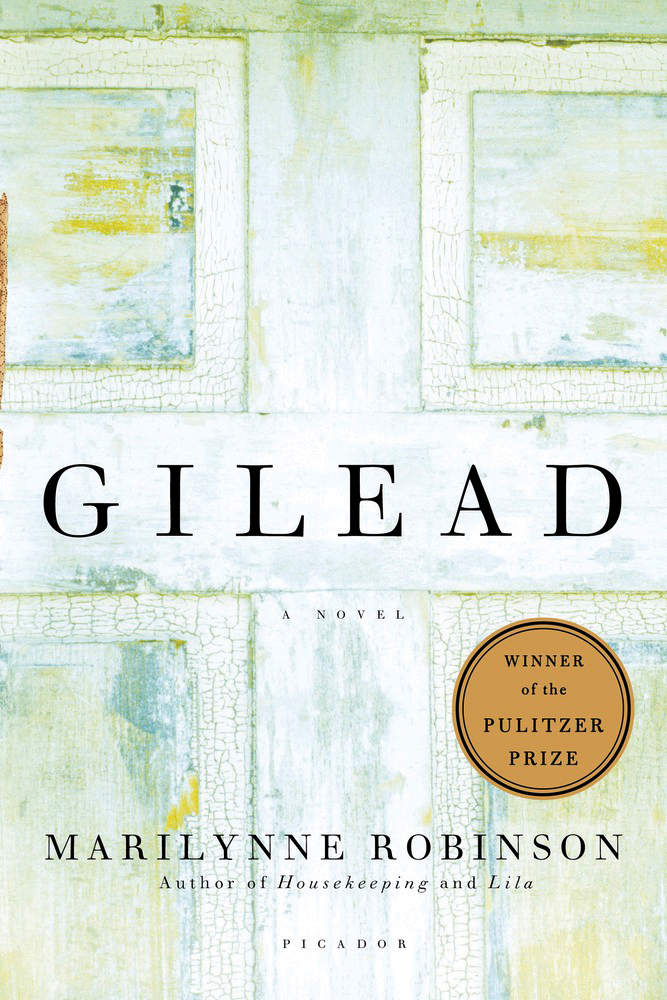
By Christina Tinglof
“Wherever you turn your eyes the world shines like transfiguration. You don’t have to bring a thing to it but a little willingness to see. Only who could have the courage to see it?”
The first time I read Gilead by Marilynne Robinson, it left me crying on the subway. The second time I read it, I was wiping tears from my eyes in a coffee shop. Gilead is one of few books able to rip into my cold New England heart, to teach me how to glimpse the world through heavenly eyes, to speak to the reality of pastoral life in a way I deeply understood but had never seen articulated.
Central to Gilead is narrator John Ames’s attention to the holy in the beauty of the created world, from the sky in Kansas above his grandfather’s grave to the weight of his young son on his lap to his wife’s singing voice. A minister in a small Iowa town, Ames’s senses are alive and tender to the presence of the divine all around him, even and especially in the memories that contain the most sorrow.
As a young boy, Ames accompanies his father as he helps clean up the site of a burned-down church on a rainy afternoon. While the men step through the charred remains, burying the ruined Bibles and hymnals in the ground, the women sing hymns and sway, almost dancing, their long hair hanging down their back, and the children crouch underneath a wagon, away from the rain. Ames’s father comes over to give Ames something to eat—a biscuit charred by his father’s ashy hand. For Ames it is a communion, a means of grace in the midst of grief.
Eight years ago, I lost a member of my youth group to gang violence. On the morning of our annual church picnic and baptism service at a local pond, I received the call that Besher had been killed. We sang “Hallelujah, What a Savior,” which I felt but couldn’t sing. “He is with me to the end,” carried over the water, the sun glinting off the tiny waves. We waded into the pond, the baptized crossed their arms and held their noses and then shook droplets from their hair. The memory of that day, like Ames’s memories of the swaying women and the shared biscuit, flecked with ash, always brings me to a place of both joy and sorrow, of new life intermingled with a life extinguished, of the beauty and assurance of God’s presence in both.
The reality of Christian life means we are always walking in these types of tensions. The reality of pastoral life means we must hold the tensions of others while wrestling with our own. Even as Ames revels in the beautiful mundane holiness of his life, he battles with dual feelings of confidence and despair in the way he’s led his flock. This is especially true of his relationship with Jack, the troubled son of Ames’s best friend.
Ames spends much of Gilead wrestling with his feelings toward Jack, from his jealousy over the friendship that Jack has with Ames’s wife, Lila, to the sense that he failed Jack as a spiritual father, even remembering the coldness he felt in his hands at Jack’s baptism. He tries to address Jack’s spiritual concerns academically, but in the end it’s a simple blessing—Ames’s hand against Jack’s forehead at a bus station—that allows Jack a moment of vulnerability, a first encounter with grace. Ames says, “I’d have gone through seminary and ordination and all the years intervening for that one moment.”
I have had these encounters myself, in a car, cleaning my office, when a young person shares something or asks something so tender that I have to hold my breath. All my questioning and self doubt is swallowed up by such small moments when the Spirit is so present, in both an embodied and a transcendent way, and my calling as a pastor fulfilled, not by my own gifts or strength but instead in a momentary willingness to set aside myself to make room for grace.
In her essay “Psalm Eight,” Marilynne Robinson says, “I have spent my life watching, not to see beyond the world, merely to see, great mystery, what is plainly before my eyes…the scene of miracle is here, among us.” Gilead is the novel that willed me to stop looking for the divine and the holy and the sacramental in the distance, but instead to see it in the now, in the blessings and the bitterness of everyday existence—to see my opportunities to be open to grace, to lay my hand on the head of my enemy, to accept the charred biscuit as holy food.


I love this Christina. Thanks for sharing.